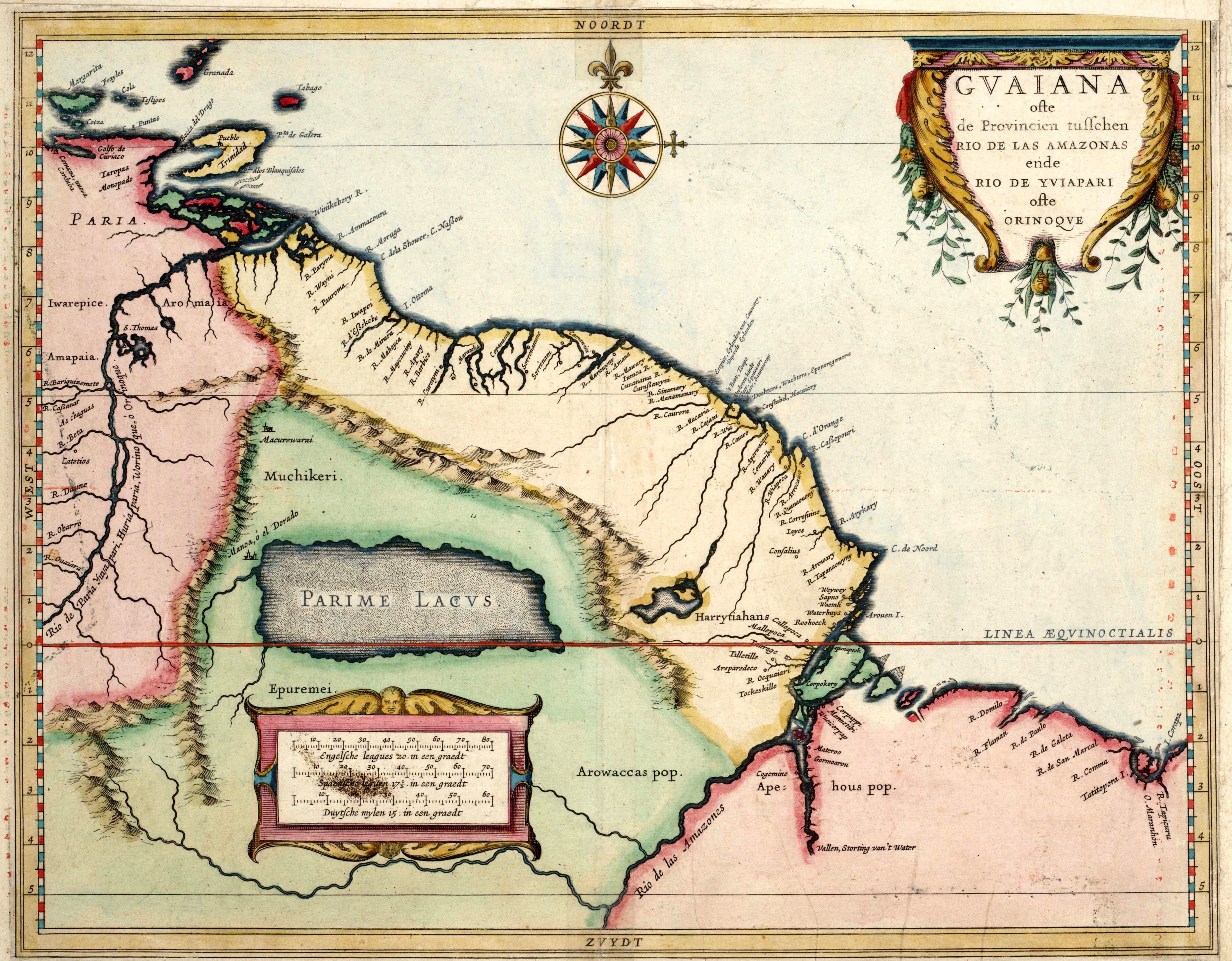
based on a map from
this great siteYesterday Venezuelan and Colombian media outlets reported some 392 Colombian and Brazilian citizens were forced to leave Venezuela, where they working in a mine near
San Fernando de Atabapo. Now they are in
Inírida, capital of the Colombian department of Guainía. Some 400 more are expected soon.
Venezuelan news are saying
those minders were illegal. Colombians are
saying the expulsion of so many people is causing a big problem for Inírida and that it is just inhumane. This event takes place on the context of the increasing tension between Chávez and Uribe.

Orinoco meets Casiquiare: in spite of the brown colour they always had, they were clean until mining and other uncontrolled industries arrived.
I do not know why Hugo decided to throw out the Colombian miners now: does the Venezuelan military want the resources to be exploited by someone else? Who then? Or were they just finally trying to put some order in the plundering of the Amazonas region? Or is it something else?
What I do know and see here anyhow is what people on either side don't discuss: this event shows once again the absolute lack of governance, the absolute chaos and the complete lack accountability on both sides.
- Fact: they were working illegally indeed.
- Fact: they are not the only ones, illegal mining is happening everywhere in the Amazonas state and in Bolívar state, it is done by Venezuelans and foreigners alike.
- Fact: they are using mercury, mercury that goes into the rivers (the Río Negro, the Casiquiare and the Orinoco, among many others), mercury that is highly poisonous to all forms of life and which is almost impossible to clean up.
- Fact: those miners, together with lots of Venezuelan miners from poor and not so poor regions, are getting into native American territory, they are making native Americans again a minority in the last regions native Americans have left.
- Fact: military on both sides just control those they want, not those they should.
Below you have a map of the Venezuelan Amazonas State showing population density (inhabitants/km2). San Fernando de Atabapo and its whole municipality have less than 15000 inhabitants. Around that city you have the territories of some very small First Nations who until now have had very little contact with alcohol, Western diseases and so on.

Here a look at the other side, the neighbouring departments and the estimate population there.
Many of the miners, according to sources from the Colombian side, are not from those departments but from other regions of Colombia.

The Colombian departments on the other side of the Orinoco and Río Negro have a much higher population and there is a civil war going on there. The Venezuelan government seems to be siding with the guerrillas for many years already.
Some NGOs say there are around 3 million illegal Colombians in Venezuela. That is over 10% of Venezuela's population. In Venezuela there is no reliable registry of population. On one side, for some years now you have to tell your ID number to any vendor in Venezuela when you buy (not just sell) anything but a hot dog. This is supposedly for VAT reasons. On the other side the government does not know really who lives where and estimates for population in many municipalities are just wild guesses.
Everybody - the opposition in Venezuela, the government, the Colombian government and the Colombian opposition - should openly talk about possible solutions to uncontrolled movements of populations, present transparent mechanisms to improve the security situation on both sides of the border and work on detailed plans for a sustainable development of the region. That is very unlikely to happen now. The native Americans - the Puinave, the Piapoco and others - as well as the natural resources are the ones who are suffering.
Geez...we so badly need shadow ministers in Venezuela that show Venezuelans there are solutions, we need them now, even in the middle of the emerging dictatorship.
Oops...apologies to the Piapocos, I mispelt their name in the map below











